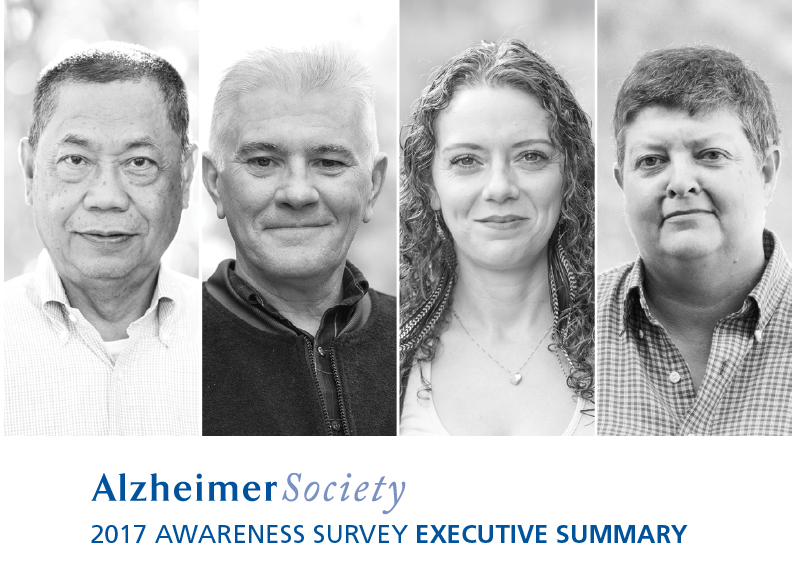Addressing stigma
Addressing stigma
Understanding stigma
Stigma is negative attitudes or discrimination against someone based on characteristics such as dementia, mental health, or a disability. It is one of the biggest barriers to people impacted by dementia being treated with dignity and respect.
Stigma can be explicit, such as treating someone with impatience or deliberately excluding them, or the result of not recognizing that your words, behaviours, or actions are hurting someone or perpetuating untruths or stereotypes. Comments, jokes, and even false assumptions about the impact of people’s age, mental health, and dementia may seem harmless when they are actually upsetting or triggering to people who feel scared, excluded, or angry about what they are experiencing.
To understand more about the prevalence and breadth of stigma as well as some of Canadians’ perceptions of people impacted by dementia, consider reading the executive summary for the 2017 Awareness Survey.
58% of Canadians who responded to the Alzheimer Society of Canada’s 2017 Awareness Survey indicated that they believe people living with dementia are likely to experience being ignored or dismissed and 51 per cent admit to using language that contributes to stigma.
The consequences of stigma
The consequences of stigma can be serious and devastating to people living with dementia or acting as a care partner to someone with dementia. People who experience negative attitudes and discrimination related to dementia and its impacts are more:
- Reluctant to consult a doctor to seek diagnosis and treatment.
- Reluctant to inform their employer that they are experiencing challenges in the workplace.
- Reluctant to talk about and strive to overcome their challenges.
- Likely to experience delayed treatment, which can decrease both quality of life and life expectancy.
- Likely to lack positive and supportive relationships that help to increase quality of life.
- Likely to suffer from poor mental health and quality of life.
- Likely to feel increased shame and self-doubt.
Taking steps to end stigma
There are many ways that you can help to end the stigma of dementia. Consider:
- Adopting a respectful workplace policy that commits to a workplace free of harassment, violence, and discrimination. Be clear about the consequences of employees exhibiting disrespectful behaviour in the workplace or that reflects back on the workplace.
- Identifying who will receive, evaluate, and act on complaints that go against your respectful workplace policy.
- Developing a confidential and, if required, anonymous process that allows people to make complaints about behaviour in the workplace without facing consequences themselves.
- Modeling respectful behaviour that values, includes, and supports people living with dementia and people who are care partners.
- Talking openly about dementia - one of the most helpful things we can do is talk openly about dementia to help make it okay for others to talk about how dementia is impacting them and let them know that they aren’t alone on their journey.
